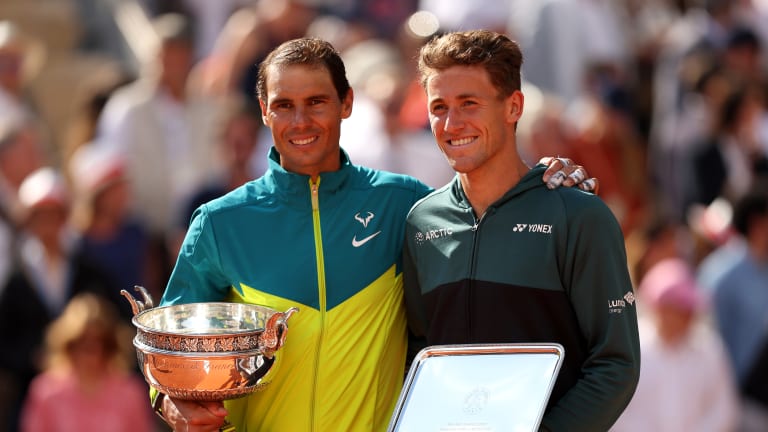Instruction
The Real World: Why playing better players is bad for your tennis health
By Jul 31, 2022Instruction
Court of Appeals: Water Break
By May 20, 2023Instruction
Toni Nadal: With improved backhand, Casper Ruud "can be No. 1"
By Nov 21, 2022Instruction
Quick Tip: Add a rocking motion to the start of your serve
By Nov 16, 2022Instruction
Tennis Channel Academy: Rectifying Road Rage
By Oct 13, 2022Instruction
Tennis Channel Academy: Is the Lesson Model Broken?
By Oct 12, 2022Instruction
Breaking The Rules: Time to abandon the net touch?
By Oct 11, 2022Instruction
Mission Transition: How to bring your game from baseline to net (Part 3 of 3)
By Oct 03, 2022Instruction
Mission Transition: How to bring your game from baseline to net (Part 2 of 3)
By Oct 03, 2022Instruction
What can be applied from Carlos Alcaraz, Casper Ruud to your game? How to enjoy the competitive process
By Sep 12, 2022The Real World: Why playing better players is bad for your tennis health
“When you play better players constantly, you get used to losing,” says Allen Fox, author of If I’m the Better Player, Why Can’t I Win?
Published Jul 31, 2022
Advertising

Casper Ruud's many practice sessions with Rafael Nadal ultimately didn't help him make a dent against the Spaniard at this year's Roland Garros final.
© Getty Images